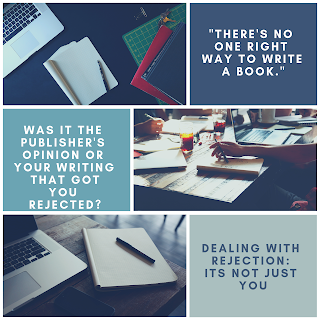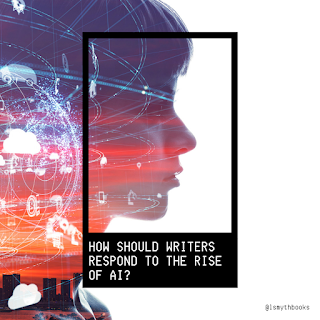Dealing with Rejection: It's Not Just You
Could there have been a mistake? you wonder, looking it over disappointedly. No mistake. The letter that doesn't include your name was meant for you.
At this point, you start asking questions. What did I do wrong? Was it my query letter or the manuscript itself? Was it because the characters were badly developed? No, that couldn't be it. Was it because I'm a bad writer?
Having your writing rejected hurts because most writing is essentially subjective. There's no one 'right' way to write a book, and I've read bestsellers that I thought were badly written and supposedly 'bad' novels that I thought were well-written. You try to appeal to as many readers as you can, but in the end not everyone will like your work. So you're stuck in a never-ending dilemma: Was it the publisher's opinion, or was it your writing that got your work rejected?
First of all, never assume either one or the other. Scientifically speaking, the best way to figure it out is to do a bit of experimenting. Let some friends read your manuscript (and by friends, I mean people who have no problems telling you exactly what they're thinking, whether it's good or bad). Ask them if they liked your book or not and why. If they say no and give you specific reasons why, consider going back and revising your manuscript before submitting it again. If they say yes and give you specific reasons why, try submitting your work to another publisher. Assuming your friends are honest, you've just gotten your answer - your manuscript just wasn't what the publisher was looking for. That's completely normal. Maybe the publisher has a personal preference for YA science fiction, and you sent him a nonfiction history of the life of Beethoven. You could've written a real classic, but the traditional rejection letter would probably still appear in your inbox.
Second, be prepared to take rejection letters as constructive criticism. Think about it this way: if you accidentally went out looking like Princess Leia, would you prefer to have a friend tell you on your way out the door or wait until you'd already given a speech at the White House and modeled for a magazine? Of course, you'd want your friend to tell you. Rejection letters and criticism from friends should always be perceived this way. They not only help make your writing better - they also make you a stronger writer, capable of taking rejection that would destroy other people and using it to improve. Not everyone can do that, and once you learn this skill, you'll never lose it.
When I was still in dance, I trained intensely for multiple days every week, tried hard to be respectful to everyone, and helped the staff as much as I could. Despite this, there was always one teacher who would treat me like his problem student. He called me out in front of the whole class, made me demonstrate and then pointed out all the flaws in my performance, and altogether tried to belittle me as much as possible. Oddly enough, he was my favorite teacher and I was his favorite student. It took me years to realize that he was testing me to see how much criticism I could handle and what effect it would have. The more I smiled and took his words to heart, the more he picked on me, and the stronger I grew. If I ever meet him again, I'd want to say thank you for all the times he embarrassed me in front of the professional dancers. (Maybe.)
As easy as this is to say, it's not easy to take this philosophy to heart when you're staring at a rejection letter. Just try to remember that you can learn from this experience. And maybe someday you can help someone else who's struggling with rejection and tempted to give up. Don't.
Writing is a wonderful business because there's always another chance and another publisher.



Comments
Post a Comment